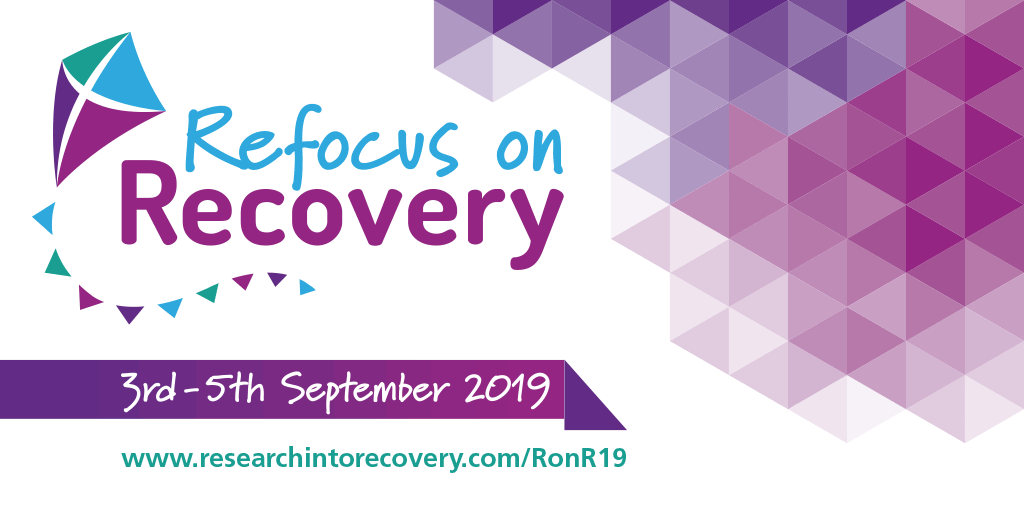
William Anthony (1993) defined recovery as “a deeply personal, unique process of change…a way of living a satisfying, hopeful and contributing life even with limitations caused by illness [and] a process involving the development of new meaning or purpose in one’s life”.
Stories related to mental ill health and recovery could increase empathy and understanding from others, and enable individuals to make meaning of their experiences. Collectively these could possibly build hope. These stories are commonly explored in mental health and survivor-led research, and in therapy rooms (e.g. Psychodynamic and narrative approaches). Storytelling has also been practised in recovery-based healthcare such as in recovery colleges.
Unaware of any previous systematic review on the characteristics of recovery narratives, Llewellyn-Beardsley et al (2019) set out to produce a new systematic review. Their thinking was that a comprehensive overview could show a diversity of narrative templates and highlight gaps in the current approaches to recovery narratives. So the aims of their systematic review (Llewellyn-Beardsley et al, 2019) were:
- To review published documents presenting typologies or characteristics of mental health recovery narratives;
- To use a modified narrative synthesis to develop a conceptual framework for the characterisation of mental health recovery narratives.
The concept of recovery has been controversial (see previous Mental Elf blogs by Alison Faulkner, Simon Bradstreet and others). Understanding the characteristics of recovery narratives is not an end in itself. The authors also cautioned about the danger of the narrowing of narrative templates which might result in the replacement of the current conventional (or dominant) narratives, constraining the context in which individuals could tell these stories. One should also be aware of the implicit bias as the narratives are traditionally focused on the global North.

The concept of mental health recovery has been, and continues to be controversial.
Methods
This reviewed was pre-registered (Prospero CRD42018090188) and the reporting followed the PRISMA guideline.
Inclusion criteria
- Present or substantially advance an original framework of characteristics of mental health recovery narratives (including recovery from trauma and childhood maltreatment)
- Based on empirical data
Exclusion criteria
- Present themes arising from narrative data without discussion of the characteristics of narratives themselves
- Not primarily or partially about mental health, recovery from chronic pain, physically illness or drug/alcohol addiction
- Based on third-person accounts, stories told by family, friends, carers, professionals
- Full text not available in English
Search strategies included a scoping research, publication, grey literature, web-based as well as hand searches. The CASP quality appraisal tool for qualitative studies was used (using the threshold modified by Butler et al) and the mixed methods appraisal tool was used for mixed-method data. Narrative synthesis was chosen for analysis.
A three-stage narrative synthesis was used based on the principles of preserving the study authors’ original terminology and avoiding over-combining concepts.
Involvement from people with lived experience
The authors consulted a lived experience advisory panel, which (according to the authors) resulted in an improved clarity of language and definition as well as improved coherence.
Results
A total of 45 studies with 629 recovery narratives were included in this review.
The resulting synthesised conceptual framework of mental health narratives included three superordinate categories, namely narrative form, structure and content, and nine dimensions: Genre, Positioning, Emotional Tone, Relationship with Recovery, Trajectory, Use of Turning Points, Narrative Sequence, Protagonists and Use of Metaphor.
I have summarised the results in the table below:
Superordinate category: Narrative form |
||||||||||||||||||||
1. Genre types (n=12) |
||||||||||||||||||||
| Escape
– Narrative of escape from and resistance to abuse, threat, stigma etc |
Endurance
– Narrative of loss, trauma, difficult circumstances etc |
Endeavour
– Includes positive aspects, coping strategies or plans, acceptance of difficulties as an ongoing factor of recovery |
Enlightenment
– Narratives of transformation (e.g. as a quest/growth) |
|||||||||||||||||
2. Positioning types (in relation to clinical model) (n=11) |
||||||||||||||||||||
| Recovery within the system | Recovery despite the system | Recovery outside the system | ||||||||||||||||||
| – Positive experiences of clinical mental health experiences | – Narratives of protest, in opposition to the clinical model of mental ill health and/or mental health services and systems | – Narratives in which clinical mental health services were not featured/feature minimally | ||||||||||||||||||
3. Emotional tone (n=3) |
||||||||||||||||||||
| Critical | Disenfranchised | Reflective | Buoyant | Shaken | Tragic | |||||||||||||||
4. Relationship with recovery (n=9) |
||||||||||||||||||||
| Recovered | Living well | Making progress | Surviving day to day | |||||||||||||||||
Superordinate category: Narrative structure |
||||||||||||||||||||
5. Narrative trajectory (n= 7) |
||||||||||||||||||||
| Upward spiral | Up and down/Non-linear journey
– Spiralling ever forward towards health |
Horizontal
– Stagnating narratives |
Interrupted
– Interrupted by an unexpected crisis or difficulty |
|||||||||||||||||
6. Use of turning point (n= 11) |
||||||||||||||||||||
| Re-storying
– Narrator gains new understanding of their experiences |
Change for the better | Change for the better or worse | ||||||||||||||||||
7. Narrative sequence (n= 8) |
||||||||||||||||||||
| Life before distress/ trauma | Problems begin | Problems worsen | Impact of illness/ trauma | Glimpses of recovery | Turning point | Roads to recovery | Life afterwards | |||||||||||||
Superordinate category: Narrative content |
||||||||||||||||||||
8. Protagonist (n=4) |
||||||||||||||||||||
| Personal level
– Micro-level or inter/intra-personal factors within a mental health recovery narrative |
Socio-cultural level
– Meso-level factors within a mental health recovery narrative eg. Family and friendship dynamics, groups or local organisations, mental health staff and services |
Systemic level
– Macro-level factors (e.g. community) |
||||||||||||||||||
9. Use of metaphor (n=3) |
||||||||||||||||||||
| Distress metaphor
– e.g. Spiralling out of control |
Recovery metaphor
– e.g. Bonding and integration, regaining control of life |
|||||||||||||||||||
The authors also conducted four sub-group analyses:
- Analysing moderate to high quality papers (n=15): They found the absence of ‘protagonists’ and ‘use of metaphor’, a type of Genre (‘endeavour’), two types of Emotional tone (‘buoyant’ and ‘tragic’) and a type within Relationship with Recovery (‘recovered’).
- Analysing papers with narrator involvement at analysis stage (n=11): Emotional tone dimension was not found
- Analysing papers focusing exclusively on narratives of psychosis (n=12): No significant difference was found between this set of papers and those about other conditions
- Analysing papers focusing exclusively on narratives of trauma (n=6): They largely focused on dimensions within the superordinate category of Narrative Structure (Trajectory, Use of Turning Points and Narrative Sequence).

The review includes a wide range of recovery stories: recovery within the system, recovery despite the system, and recovery outside the system.
Key summaries from the authors
1. Recovery narratives present diverse, fluid meaning-making processes
There is no ‘right way ‘of narrating recovery or characterising mental health recovery narratives. Narratives can be revised by narrators and may change over time.
2. Recovery narratives are multidimensional
Narratives highlight individual meaning-making processes as well as broader socio-economic and systemic influences.
3. Recovery narratives are distinct from illness narratives
a. Recovery narratives incorporate social, political and human rights factors: The narratives of ‘escape’ (escape from services or from treatments that were experienced as damaging) illustrates some of the political factors involved. Another example is the ‘recovery despite and system’ and ‘recovery outside the system’ categories which show the importance of social and interpersonal facilitators in recovery.
b. Recovery narratives include recovery outside of and within mental health services: All narratives are valid experiences – some narrators had positive experiences within services whilst recovery despite/ outside the system challenge the clinical model.
c. Recovery narratives challenge diagnostic master narratives and narrative theory itself: The authors challenged that coherence is not a necessary prerequisite for determining whether a narrative is meaningful. Moreover, they argued against the stereotype of people experiencing psychosis having a lack of insight, as the subgroup analysis found comparable characteristics between narratives of psychosis and other conditions.
d. Recovery narratives may help identify and generate post-traumatic growth: The ‘enlightenment’ type echoes the domains of post-traumatic growth.
4. Recovery narratives can be non-linear
The ‘narrative trajectory’ structure shows non-linearity and ‘change for the better or worse’ challenges the assumption of recovery being a straightforward progression.

This review suggests that all mental health narratives are valid experiences, and a narrative does not have to be coherent for it to be meaningful.
Implications for practice
The authors proposed the following implications:
- A transdiagnostic approach
- They believe that this could be an inclusive approach to treatment and services, as sub-group analysis did not show differences between the characteristics of narratives in psychosis or trauma, compared to those of other conditions
- As a diversity tool
- This framework forms the basis for expanding the range of examples and resources offered when developing recovery stories;
- Repositories could make use of this resource to avoid potential biases and to minimise potential gaps in collections
- Promoting trauma-informed practice
- The authors called for an awareness of the assumption that there might not be a ‘life before the problem began’ stage. The narrator might not have a ‘before/problem-free’ stage to return to
- As a matching tool
- This could help practitioners connect individuals with the types of recovery narratives that might benefit them the most within a particular context.

We must remember that some narrators of a mental health narratives might not have a ‘life before the problem began’ stage to return to.
Strengths and limitations
The strengths of the review lie in the comprehensive search strategy, a robust quality assessment process and the inclusion of a lived experience advisory panel. Reflexivity was discussed: the first and second authors considered their dual identities as researchers and people with lived experience of mental ill health and recovery in their analyses.
However, all included narratives were offline materials that were either written or spoken. Yet, recovery narratives also encompass other forms including music, art, and photos. The authors acknowledged that only reviewing the studies that were written in English could potentially bias the result (e.g. being monocultural). None of the included studies was from Africa or Asia (except one study with a multinational team that included India). There are in fact initiatives in the global south such as the Sharing Stories Venture in Uganda.
We also need to be aware that the current analysis was based on secondary data (interpretations from authors in the included studies in the review) but not the raw/primary research data, though this is a general limitation of meta-synthesis of qualitative studies.

This review only included studies written in English and so may have excluded many research papers and initiatives happening around the world.
Discussion
Personally, I am curious to know more details about the consultation process with the advisory panel, and the rationale behind adopting narrative synthesis as opposed to other qualitative synthesis methodology, which the authors did not mention in great detail. I have been skeptical about putting a framework/ guideline about telling recovery narrative in my own area of work, however, I do think a synthesised conceptual framework of mental health recovery narratives could be an accessible resource and help lay a foundation for future work for practitioners and researchers alike. Perhaps one’s attitude when referencing the framework is more important. One should be cautious about how, for what purpose, and to whom narratives are being told and shared in order to help expand the range of recovery narratives. Alison Faulkner’s recent Mental Elf blog on The Recovery Narrative is a great companion read to this paper.

Follow #RonR2019 on Twitter for all the discussions from the Refocus on Recovery conference, which is taking place in Nottingham on 3-5 September 2019.
Conflicts of interest
None.
Links
Primary paper
Llewellyn-Beardsley J, Rennick-Egglestone S, Callard F, Crawford P, Farkas M, et al. (2019) Characteristics of mental health recovery narratives: Systematic review and narrative synthesis. PLOS ONE 14(3): e0214678.
Other references
Anthony WA. (1993) Recovery from mental illness: The guiding vision of the mental health service system in the 1990s. Psychosocial Rehabilitation Journal, 16, 521–538. [Abstract]
Woods, A., Hart, A., & Spandler, H. (2019). The Recovery Narrative: Politics and Possibilities of a Genre. Culture, Medicine, and Psychiatry, 1-27.
The Sharing Stores Venture (2015). Clinical Psychology Forum, 268, 44-46.
The Recovery Narrative: challenging the dominance of a narrative genre #RonR2019
Photo credits
- Photo by The Word Point
- Photo by Patrick Tomasso on Unsplash
- Photo by Keenan Constance on Unsplash
- Photo by Carlos de Toro on Unsplash
